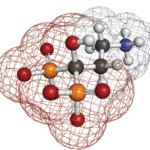PHILADELPHIA—At ACR Convergence 2022, the much-anticipated ACR Review Course featured talks from eight experts. Topics reflected the heterogeneity of our field and included Sjögren’s disease, spondyloarthritis (SpA), osteoarthritis (OA), paraneoplastic rheumatic syndromes, metabolic bone disease, statin myopathy, Raynaud’s phenomenon and autoinflammatory syndrome. Here, I share highlights from this comprehensive, six-hour session. Sjögren’s Disease Sara S….









